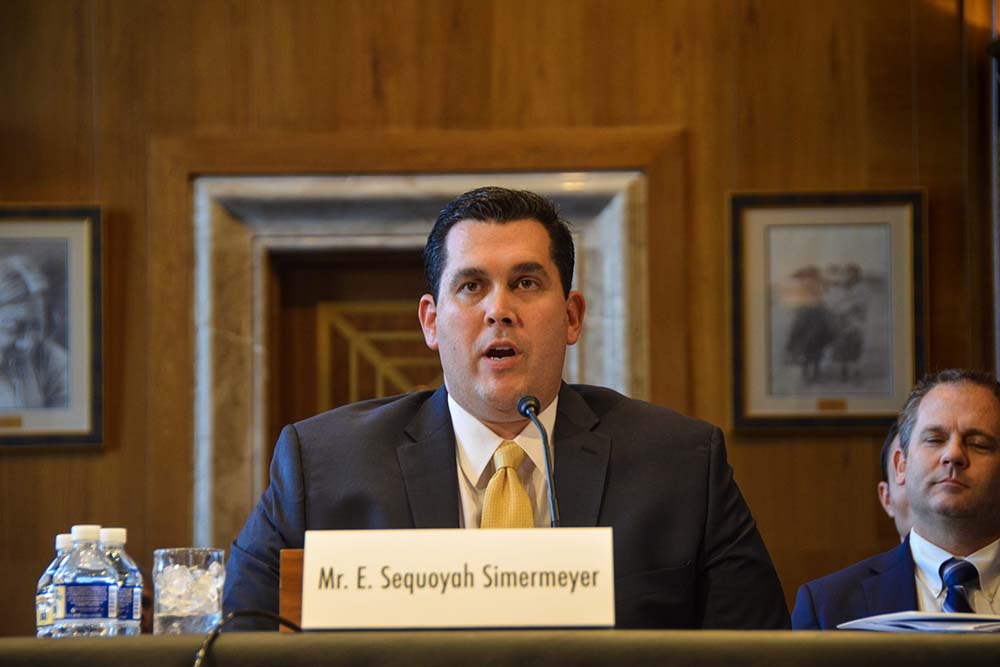
- Details
- By Tribal Business News Staff
- Gaming
E. Sequoyah Simermeyer, chairman of the National Indian Gaming Commission, resigned effective Saturday, Feb. 24, after nearly five years at the helm of the organization.
The National Indian Gaming Commission, which announced the transition on Feb. 20, oversees implementation and enforcement of the Indian Gaming Regulatory Act, which in turn governs a tribal gaming industry that crested $40 billion in 2023, according to NIGC statistics. Under Simermeyer’s leadership, the organization has improved its relationship with both tribes and federal agencies, expanded outreach and technical assistance, and worked to modernize regulations and services, per an NIGC statement.
“My time with NIGC has been some of the most memorable and impactful years of my career,” Simermeyer said in a statement. “As a Native person, I’m truly blessed to have been surrounded by experts dedicated to protecting and preserving the valuable resource Indian gaming represents for our communities.”
Simermeyer, a member of the Coharie Indian Tribe of North Carolina, took over as chairman in 2019 after serving as an associate commissioner and director of the Office of Self Regulation since 2015. As the pandemic swept across the country and Indian Country incurred massive gaming losses, Simermeyer helped oversee NIGC maneuvers and regulations that set the stage for a “multi-year, post-pandemic recovery,” the Commission writes. In total, Simermeyer worked at NIGC for 9 years.
The organization pointed to formalized environmental health and safety preparedness plans, improved tribal consultations, IT modernization, and expanded cybersecurity assistance as key achievements under Simermeyer’s leadership.
“I’ve witnessed firsthand how tribes across the Indian gaming industry have pursued economic sustainability through gaming by relying on - and cultivating - the robust regulatory reputation for which Indian gaming is well known, and made better when supported by effective and efficient measures by Indian gaming’s regulators,” Simermeyer said. “I’m thankful for the advice and counsel of my fellow commissioners and NIGC staff, and the support and hard work of the nearly 5,000 tribal regulators who work alongside NIGC day-in and day-out to keep Indian gaming strong now, and for the next 35 years.”
Additional details regarding the transition will be forthcoming, according to the NIGC statement.
